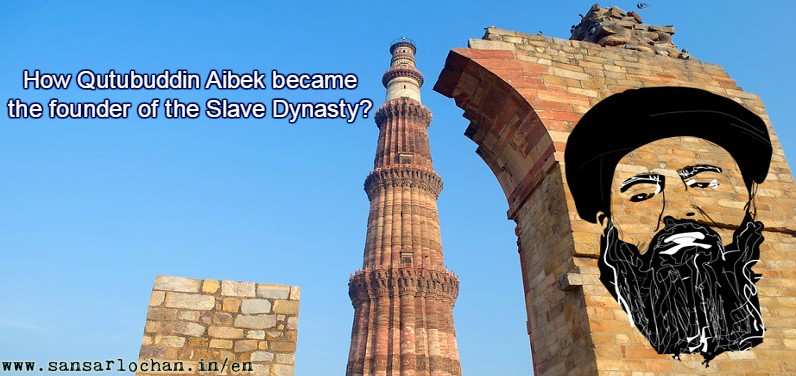Muhammad Ghori had a passion for acquiring Turkish slaves whom he treated with affection and care. He provided opportunities to them to develop their personalities and build their careers. It shows his love and sympathies for the persons of his own race who had suffered immensely at the hands of the Muslim invaders of the Arabic and Persian stocks as well as the Mongols. By purchasing Turkish Youth, Muhammad Ghori, in fact, liberated them from the clutches of others and afforded them royal patronage. In return, Ghori received immense affection and unqualified service from them. Many of these slaves rose to prominence as military generals. They earned reputation for courage, fighting skills and organisational abilities. They served their master with loyalty and helped Muhammad Ghori expanding the boundaries of his empire. They were devoted to the tasks entrusted to them. Muhammad Ghori is said to have once remarked that these slaves were his sons who would inherit them, fame and the fortunes of his empire. Qutubuddin Aibek is called the founder of what is known in Indian History as the Slave or Mamluk Dynasty which ruled northern India from 1206 to 1290.
Qutubuddin Aibek
Qutubuddin Aibek was one of these trusted slave officers of Muhammad Ghori. After the latter’s death, Aibek inherited his Indian possessions and set up as an independent ruler with his headquarters at Lahore. Qutubuddin Aibek laid the foundation of the first independent Turkish kingdom in northern India whose boundaries extended from north-west frontier to Bihar and Bengal in the east. It was untagged by Aibek from the apron-strings of the Ghaznavid empire.
Early Career of Aibek
Qutubuddin Aibek was a Turk of the Aibek tribe which, in Turkish language, means “Lord of the Moon”. It was so named because of the handsome and attractive features of its men and women. Though Qutubuddin Aibek was rather ugly in appearance. He was taken prisoner and sold as slave to a kind hearted qazi of Nishapur (Persia). He received education in Islamic theology and learnt horse-riding. After the death of his owner, his sons sold him off to Muhammad Ghori. Aibek caught the fancy of his new master because of his marital qualities and intelligence. Very shortly, he was promoted amir i akhur – “the master of the royal stables.” He rose to prominence during the Indian campaigns of Muhammad Ghori. After his victory over Prithvi Raj III, the Chauhan ruler of Delhi and Ajmer, in 1992, Muhammad Ghori appointed Aibek as the viceroy of his Indian possessions. Qutubuddin Aibek set up his military headquarters at Indraprastha, near Delhi. Aibek strengthened his position by entering into matrimonial alliances with other distinguished nobles of Muhammad Ghori.
